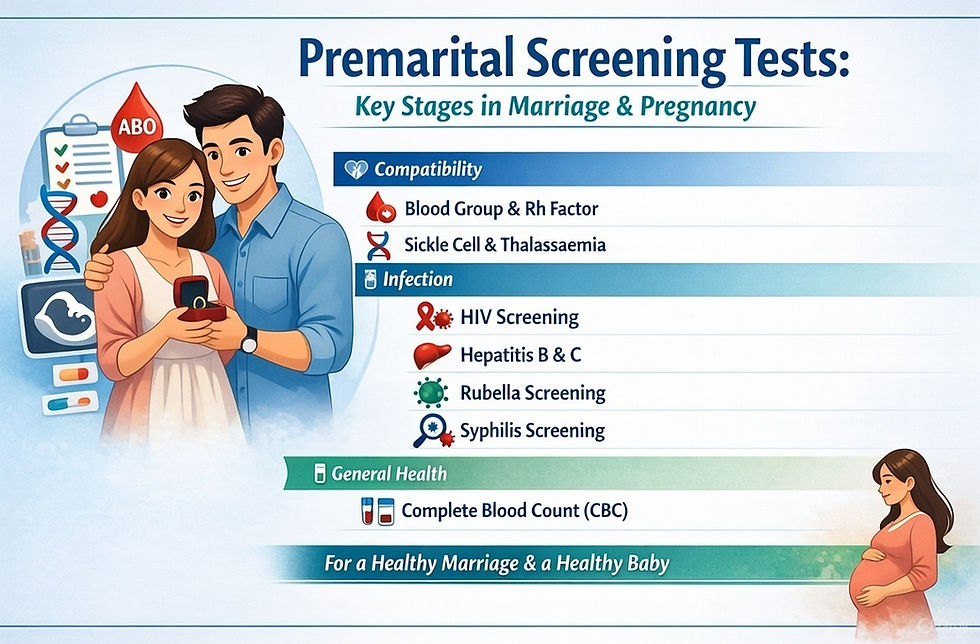Unmasking the Mystery: Early Detection Tests for Multiple Myeloma
- EJB
- Apr 9, 2024
- 2 min read
Multiple myeloma (MM), a cancer of the plasma cells in bone marrow, can be shrouded in uncertainty. Early detection is crucial for better outcomes, but what tests can help unveil MM before symptoms arise? This blog delves into the world of MM and equips you with knowledge about potential early detection tests.

Understanding Multiple Myeloma:
Imagine your bone marrow as a factory producing infection-fighting antibodies by special cells called plasma cells. In MM, these plasma cells become abnormal and multiply uncontrollably, disrupting healthy bone production and potentially causing various health problems.
Why Early Detection Matters:
Catching MM early, often before symptoms appear, offers significant advantages. Early intervention with treatment plans can potentially improve responses, manage complications, and enhance quality of life.
Tests for Early Detection of Multiple Myeloma:
While there's no single definitive test for early MM detection, several tools can raise a red flag:
Blood Tests:
Serum Protein Electrophoresis (SPEP) and Immunofixation:
These blood tests assess protein levels, including M proteins, which are abnormal proteins produced by MM cells. An abnormal result might warrant further investigation.
2. Complete Blood Count (CBC):
A low red blood cell count (anemia) can be a sign of MM.
Urine Tests:
Urine Protein Electrophoresis (UPEP) and Immunofixation:
Similar to blood tests, these tests check for M proteins in the urine, another potential indicator of MM.
Bone Marrow Tests:
Bone Marrow Aspiration and Biopsy: In some cases, a sample of bone marrow is extracted to analyze the plasma cells under a microscope for signs of MM.
Who Should Consider Early Detection Testing?
While MM can affect anyone, certain individuals might benefit from discussing early detection with their doctor, particularly those with:
A close relative with MM
A condition called Monoclonal Gammopathy of Undetermined Significance (MGUS), which can sometimes progress to MM
Remember:
Early detection doesn't guarantee MM, but it empowers informed decisions and potentially earlier intervention if needed.
Taking Charge of Your Health:
If you have concerns about MM or early detection testing, talk to your doctor. They can assess your individual risk factors and guide you on the appropriate course of action. Early detection is a powerful tool in the fight against MM. Let's work together to shed light on this condition and empower informed healthcare choices.




Great insights on the importance of early detection for multiple myeloma. Early testing can truly make a difference in managing the disease effectively. For anyone interested in understanding various testing methods, including related drug and health screenings, RapidHireSolutions offers detailed information here: https://rapidhiresolutions.com/drug-tests-and-their-applications/
Multiple myeloma (MM) is a cancer of plasma cells in the bone marrow. Early detection improves outcomes and can involve blood tests like SPEP and CBC, urine tests like UPEP, and bone marrow biopsies. Those with family history or MGUS are at higher risk. While no single test confirms MM early, these tools help spot potential warning signs before symptoms appear. Consulting a doctor about personal risk factors is key to proactive care.
For more information, visit: https://precisehire.com/key-differences-between-blood-and-urine-tests/